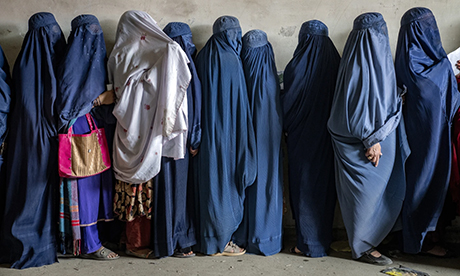The UN’s top human rights official has condemned the Taliban’s repression of Afghan women and girls, calling the situation “outrageous” and warning of its dire consequences for the country’s future.
Volker Türk, UN High Commissioner for Human Rights, said the Taliban’s morality laws, which severely limit women’s roles in society, are a form of systematic gender persecution.
Speaking to the UN Human Rights Council in Geneva, Türk criticised new rules that ban women’s voices in public and enforce strict dress codes, including mandatory full-body coverings.
“I shudder to think what is next for the women and girls of Afghanistan” Türk said.
The Taliban, who regained control of Afghanistan in 2021, have systematically continued the repression of Afghan women. They have excluded women from public life, education and most forms of employment.
Despite their initial promises of a more moderate rule, the regime has since prohibited girls from attending school beyond primary level and restricted women’s access to work and healthcare unless accompanied by a male guardian. Public punishments for not adhering to the Taliban’s interpretation of Islamic dress codes have also been reported.
“I want to make clear my abhorrence of these latest measures which include forbidding even eye contact between women and men who are not related and imposing mandatory covering for women from head to toe, including their faces” Türk told the council members.
Institutionalising gender discrimination
The Taliban have yet to respond to the UN’s statements. However their latest actions, including banning women’s voices from public broadcast and tightening restrictions on travel, have drawn widespread international criticism. The Taliban’s Ministry for the Promotion of Virtue and Prevention of Vice has enforced these rules which further isolate Afghanistan from the global community.
Richard Bennett, the UN special rapporteur on the human rights situation in Afghanistan, also addressed the council. He warned that these policies are institutionalising gender discrimination and could have long-lasting impacts on Afghan society.
Bennett said he had talked to Afghans in several provinces. They had described a visible increase in the presence of morality inspectors and tightening restrictions, particularly on people’s freedom of movement.
The UN has called for greater humanitarian assistance, with 24 million Afghans currently in need of aid. Yet the Taliban’s policies, along with international sanctions, have hindered the flow of much-needed support.
Sources
